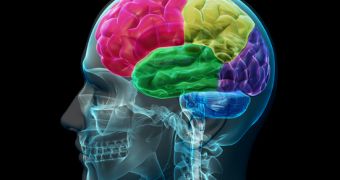According to a research whose findings were published in the scientific journal PLOS ONE this past April 2, being hungry does have its benefits. Thus, this study claims that hunger can be quite beneficial to an individual's brain, in the sense that it can help keep Alzheimer's disease at bay.
For those unaware, several people nowadays have chosen to embrace a rather peculiar regimen referred to by themselves and by the scientific community as caloric restriction.
This regimen comes down to the fact that, rather than eating either as much as they need or in surplus, these people consume a tad less calories than their bodies require.
However, they make sure that their caloric intake is not low enough for them to become malnourished.
Apparently, this caloric restriction benefits the brain by making it experience mild stress. This mild stress pushes both the brain and the entire organism into overdrive.
As a result, the plague deposits that are known to cause damage to the nerve cells of Alzheimer's disease patients never get to form, Newswise explains.
The same source informs us that, prior to their reaching the conclusion that mild and controlled hunger can help prevent Alzheimer's disease, the researchers writing in the scientific journal PLOS ONE carried out several experiments on mice.
More precisely, they gave the rodents a synthetic form of ghrelin (i.e. a hormone that is known to cause hunger).
Despite their gradually aging, the mice given the synthetic form of ghrelin displayed an improvement in their cognitive abilities and performances.
Inga Kadish, Ph.D., a researcher currently working with the University of Alabama at Birmingham, made a case of how, “This is the first paper, as far as we are aware, to show that the sensation of hunger can reduce Alzheimer’s disease pathology in a mouse model of the disease.”
“If the mechanisms are confirmed, hormonal hunger signaling may represent a new way to combat Alzheimer’s disease, either by itself or combined with caloric restriction,” said specialist went on to argue.
It is to be expected that more research on the matter at hand will shortly follow.

 14 DAY TRIAL //
14 DAY TRIAL //